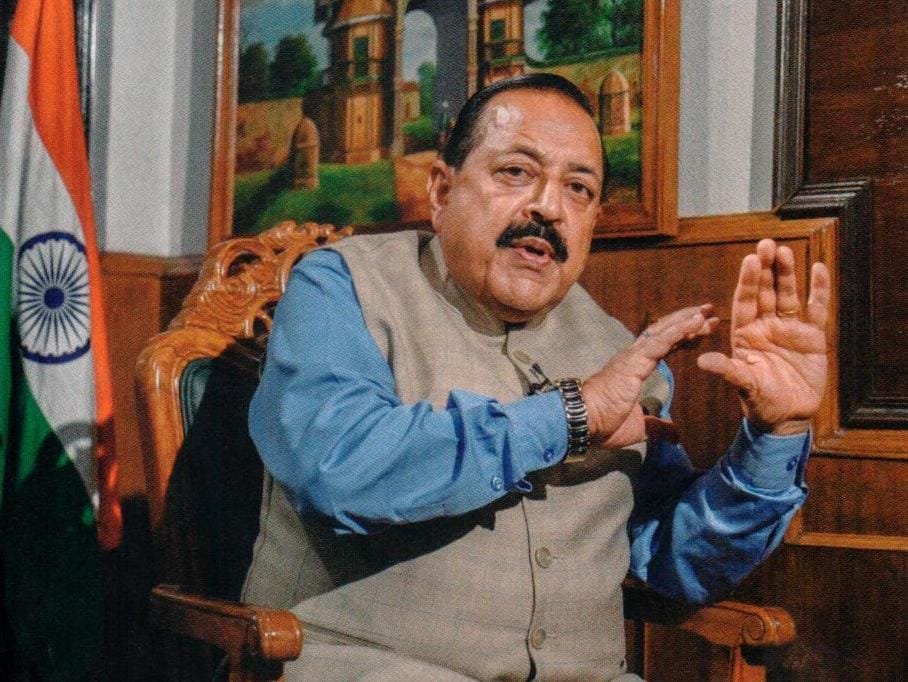Dr Jitendra Singh says the country has 150+ private startups in space sector
India could do US$40 billion (Rs.3.3 lakh crore) space business by 2040, while a recent ADL report stated that it could even go up to US$100 billion, says Dr Jitendra Singh, Minister of State for Science & Technology; Space and Atomic Energy.
“We have already earned more than US$170 million and more than 250 million Euros. We now do US$8 billion (Rs.66,000 crore) of Space business,” he said on 9 Sept 2023.
“We have a collaboration with most of the countries. The best part of the collaboration with Russia and America is that we are no longer the lesser cousins. We are now equal partners and, in many ways, more than equal.”
For example, in the space sector, India is lending space services to America and Russia among others.
Across the world, the entire growth from now onwards is going to be largely technology driven, said Dr Jitendra Singh, pointing out that this was evident from the fact that during Prime Minister Narendra Modi’s recent US visit, most of the bilateral agreements signed were based on science and innovation.
Dr Jitendra Singh shared that ISRO’s next big project is India’s first human Space flight mission ‘Gaganyaan’.
“Work is going on feverishly in its various laboratories across the country to realise ISRO’s most ambitious mission yet: putting three Indian astronauts into orbit by indigenously building a ‘human-rated’ rocket launcher and crew module to fly them into space and bring them safely back to Earth,” he said.
Three Indian Air Force pilots are undergoing rigorous training for being rocketed into space at 10 times the speed of sound and then living in zero gravity conditions, he said in a statement released by the Department of Space.
Only three nations, the US, Russia and China, have sent up their own manned missions to Space so far.
“Time and again one thing is proven, there is no dearth of talent in India. We have talent, we have calibre and competence…. For too long, we unnecessarily had a veil of secrecy and confined ourselves to ISRO,” he said.
“Apart from Aditya-L1, Gaganyaan and Venus orbiter, we are going to have a huge number of launches from the private sector.”
This also happened after the Prime Minister took the courageous decision to completely open up the Space sector to private players. As a result, there is a quantum jump in our space missions, he added.
Dr Jitendra Singh said the process of synergy is happening, and in just three years, we have more than 150 private Startups in the Space sector. The demarcation between the public and private sectors is being dismantled and it will be a totally integrated approach, he said.
“It is very progressive thinking because from now onwards, if we have to move ahead, we have to move ahead wholesomely and holistically. We cannot depend on government resources alone,” he said.
“If we have to visualise a global role for ourselves, then we have to live up to global parameters with a global strategy. That is what Americans are doing; NASA is no longer depending on government resources.”
Dr Jitendra Singh said the ‘Anusandhan National Research Foundation’ (NRF), set up by an Act passed during the last Monsoon session of Parliament, aims at equitable funding and democratisation of resources in research and academics.
“Now, in addition to the private industry investment, we have this whole ecosystem that includes the legislation, which allocates Rs.50,000 crore to be spent, with Rs.36,000 crore coming from the non-governmental sector,” he said. fiinews.com










